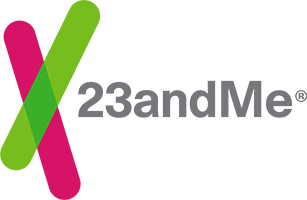23andMe Begins Enrollment for First-of-its-Kind Study on Major Depressive and Bipolar Disorders
Study recruiting 25,000 people living with major depressive and bipolar disorders will analyze survey data, cognitive assessments and genetic information to advance scientific understanding of these conditions
Mountain View, California – [August 2, 2017] – 23andMe, working in collaboration with the Milken Institute and Lundbeck, today announced that they have commenced enrollment for a first-of-its kind genetic study designed to gain understanding of the underlying biology of major depressive and bipolar disorders. This study will combine cognitive assessments with genetic data and survey responses to assess how genes influence brain processes – such as attention, decision-making and visual perception – in individuals who live with these serious mental health conditions.
“We know genetics play a role in the development of depression and bipolar, however there is a long pathway from our genes to the manifestation of complex diseases like these,” said Emily Drabant Conley, PhD., Vice President of Business Development at 23andMe. “We need to look at these conditions in a more comprehensive way to advance our understanding. By studying cognitive function alongside genetics and other environmental variables on a massive scale, we hope to take a significant step forward in the study of depression and bipolar.”
In the United States alone more than 16 million people are living with major depressive disorder1, while nearly 6 million Americans suffer from bipolar disorder.2 While the causes of these disorders remain largely unknown, there are clues. For example, current research suggests major depressive and bipolar disorders are caused by a combination of genetic, biological and environmental factors3,4, and some studies have shown there is a genetic component involved.5,6
To conduct this research, 23andMe intends to recruit 15,000 people with major depressive disorder and 10,000 people with bipolar disorder. The study is open to anyone ages 18- to 50-years-old who has been diagnosed by a physician with major depressive disorder or bipolar disorder, has been prescribed medication to treat his/her condition, lives in the United States and has access to the internet through a desktop or laptop computer (for full eligibility criteria visit the study landing page).
As part of the study, consenting participants will receive the 23andMe Personal Genome Service® at no cost, including more than 75 personalized genetic reports about their health, traits and ancestry. Study participants will provide a saliva sample for DNA genotyping, and then complete nine monthly online cognitive assessment sessions that each last between 10-30 minutes. Participants’ de-identified data will be analyzed for clues as to how genetics and environmental factors combine to impact brain function and behavior.
“We look forward to leveraging our patient advocacy network and social following to help drive awareness and recruitment efforts for the 23andMe study,” said Melissa Stevens, executive director of the Milken Institute’s Center for Strategic Philanthropy. “Moreover, we are excited to better understand the disease biology of bipolar and major depressive disorders as doing so will help us guide philanthropists to maximize the return on their mental health giving programs.”
This upcoming study will build upon 23andMe’s body of research in mood disorders. In the first finding of its kind on major depressive disorder, 23andMe co-authored a study identifying 15 genetic regions linked to depression in August 2016.6 The launch of this new study today furthers 23andMe’s genetic discovery efforts with research collaborations already established in Parkinson’s disease, lupus and inflammatory bowel disease, and over 75 peer-reviewed papers published in scientific journals.
About 23andMe
23andMe, Inc. is the leading personal genetics company. Founded in 2006, the mission of the company is to help people access, understand and benefit from the human genome. 23andMe has more than two million customers worldwide, with more than 80 percent consented to participate in research. 23andMe, Inc. is located in Mountain View, CA. More information is available at www.23andMe.com.
About The Milken Institute
The Milken Institute is a nonprofit, nonpartisan think tank determined to increase global prosperity by advancing collaborative solutions that widen access to capital, create jobs and improve health. It conducts data-driven research, convenes action-oriented meetings and promotes meaningful policy initiatives. More information is available at www.milkeninstitute.org.
About Lundbeck
H. Lundbeck A/S (LUN.CO, LUN DC, HLUYY) is a global pharmaceutical company specialized in psychiatric and neurological disorders. For more than 70 years, we have been at the forefront of research within neuroscience. Our key areas of focus are depression, schizophrenia, Parkinson’s disease and Alzheimer’s disease.
For additional information, we encourage you to visit our corporate site www.lundbeck.com and connect with us on Twitter at @Lundbeck.
Media Contact(s)
[email protected]
References
- National Institute of Mental Health. Major Depression Among Adults. https://www.nimh.nih.gov/health/statistics/prevalence/major-depression-among-adults.shtml. Last accessed: March 6, 2017.
- National Institute of Mental Health. Bipolar Disorder Among Adults. https://www.nimh.nih.gov/health/statistics/prevalence/bipolar-disorder-among-adults.shtml. Last accessed: March 6, 2017.
- National Alliance on Mental Illness. Depression. http://www.nami.org/Learn-More/Mental-Health-Conditions/Depression. Last accessed: March 6, 2017.
- National Alliance on Mental Illness. Bipolar Disorder. http://www.nami.org/Learn-More/Mental-Health-Conditions/Bipolar-Disorder. Last accessed: March 6, 2017.
- Lohoff, F. W. (2010). Overview of the Genetics of Major Depressive Disorder. Current Psychiatry Reports, 12(6), 539–546. http://doi.org/10.1007/s11920-010-0150-6
- Hyde CL et al. Identification of 15 genetic loci associated with risk of major depression in individuals of European descent. Nat Gen. Vol. 48:9; Sept. 2016.

